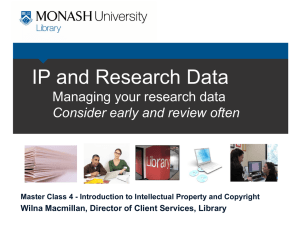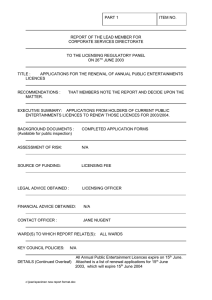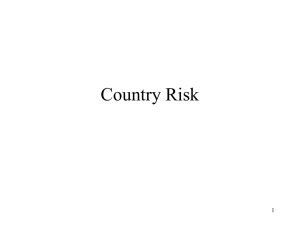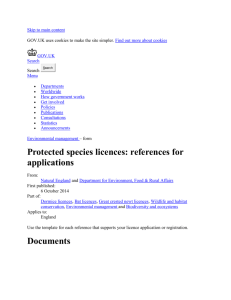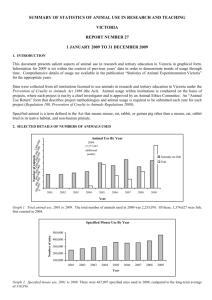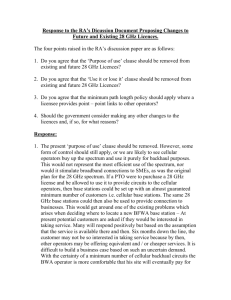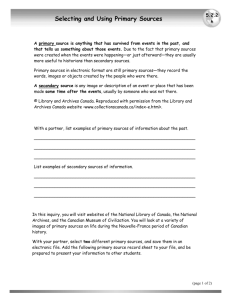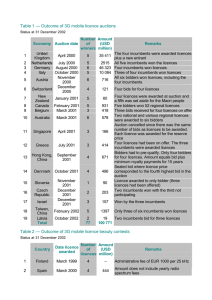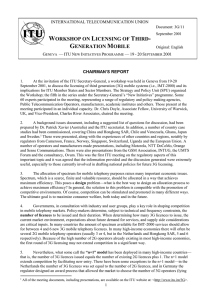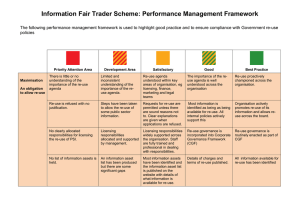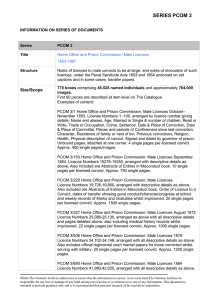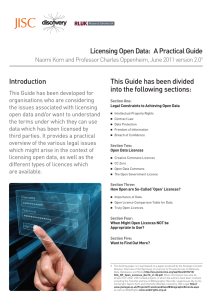IP and Research Data Managing your research data
advertisement
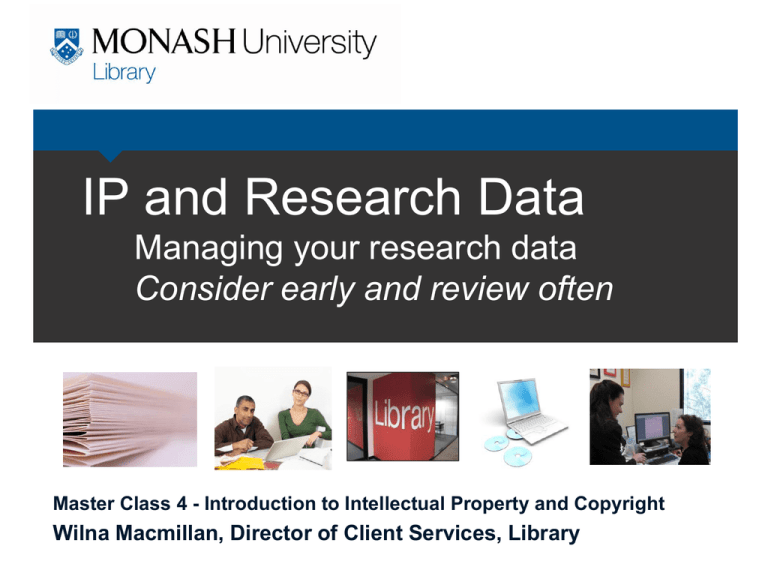
IP and Research Data Managing your research data Consider early and review often Master Class 4 - Introduction to Intellectual Property and Copyright Wilna Macmillan, Director of Client Services, Library Data created or collected by HDRs IP Framework applies to data Australian case law suggests that datasets or collections compiled through significant effort are ‘covered’ by copyright, though there are debates In general, students will own the IP in the data they generate – exceptions as mentioned earlier Re-using 3rd party data Data not created by the students e.g. – Downloaded from web archives or databases – Obtained through direct negotiation with an organisation (e.g. government agency) – Provided by supervisor or department • Same rules around seeking permission apply if express permission (e.g. licence) has not already been given by the owner • Check fine print around licences / terms and conditions for modifying & deriving data Publishing / disseminating data More publishers want data available at peer review and/or on publication Funding agencies want outputs more available More options to deposit data in repositories and archives (for validation and/or impact) Sometimes open access (licences), sometimes restricted (usage agreements) Ethics & commercialisation rules still apply Ideally, data licences should Have a large existing community of adopters Be easy to apply Clearly express how the data may be used Provide some protection of the intellectual property residing in the research data, e.g. could be used as the basis for a take-down request if infringing re-use was discovered Data licensing Different schemes available – each has strengths and weaknesses – Creative Commons – Open Data Commons – Australian Government Open Access Licences (AUSGoal) • Creative Commons framework seems best at the moment though momentum around AusGOAL Licences & copyright Copyright is retained under most licences – but the copyright owner gives express permission for certain kinds of use / re-use (e.g. non-commercial) Minimum right reserved should be Attribution - data citation is likely to become a more common measure of research impact In general, copyright should not be waived (e.g. by use of CC0 – a public domain waiver) Guidelines provide advice on common concerns Complete quickly and easily using multi-choice boxes Attach other documents and add supplementary information to create a more comprehensive data management plan Not sure which option applies to you? Follow the links to relevant resources and people who can help Case study – Health HDR student wants to obtain statistical data for her PhD from the non-profit organisation that she works for. She discovers that her agency may be merged with another local government unit and she may lose her job. There is no written agreement between the student and the agency to ensure that she will continue to have access to the data if she is no longer employed there. Case study – Science A post-doctoral researcher created a database of water quality measurements from many sources, including online data archives and print publication tables. The research was supported financially by a local government agency that wanted to make the data available on its website. The post-doc had not kept records of which parts of the database came from which sources, and was not aware of the terms and conditions that applied to re-use of the data from the online archives. In summary… New data is covered by legislation and Monash IP Framework Re-use of 3rd party data requires express permission or written agreement from the owners Licences communicate permissions upfront when publishing datasets (but ethical or commercial requirements must also be kept in mind) Consider IP and data management issues early, as part of data planning More information researchdata@monash.edu http://www.researchdata.monash.edu.au/guidelines /ownership.html Practical Data Management: A Legal and Policy Guide (2008) – download from http://www.oaklaw.qut.edu.au/reports
